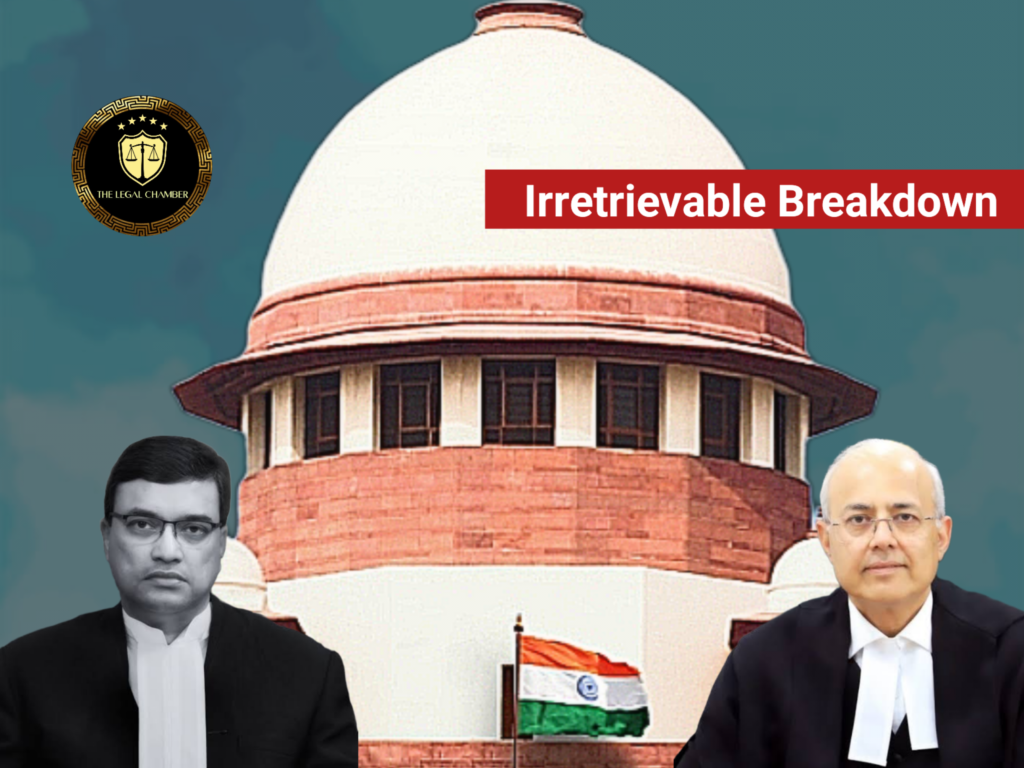
The Supreme Court, invoking Article 142 of the Constitution, dissolved the marriage on grounds of irretrievable breakdown, despite the absence of statutory provisions under the Hindu Marriage Act, 1955. Relying on precedents like Shilpa Sailesh v. Varun Sreenivasan, the Court emphasized prolonged separation (12+ years) and failed reconciliation attempts as justification, prioritizing an end to protracted litigation over traditional fault-based grounds. No alimony was awarded as the wife waived her claim.
Facts Of The Case:
The case involves a matrimonial dispute between Kumari Rekha (appellant-wife) and Shambhu Saran Paswan (respondent-husband), whose marriage was solemnized on 24th April 1999. They had a daughter born on 7th June 2001, but the couple had been living separately for over 12 years—the wife claimed separation since 2008, while the husband asserted it began in 2012. The wife, a Child Development Project Officer, filed for divorce under Section 13 of the Hindu Marriage Act, 1955, which was dismissed by the Family Court, Munger. Meanwhile, the husband’s petition under Section 9 (restitution of conjugal rights) was allowed. The Patna High Court upheld these decisions, prompting the wife to appeal to the Supreme Court.
During proceedings, the Supreme Court explored reconciliation, but the wife ruled it out, citing irretrievable breakdown of marriage, while the husband opposed divorce, expressing concerns over their daughter’s marital prospects due to societal stigma. The Court interacted with the daughter (a medical student), finding her mature and unaffected by the dispute. Considering the prolonged separation, failed reconciliation attempts, and the parties’ ages (both in their 50s), the Court invoked Article 142 to dissolve the marriage, overriding statutory limitations. The wife waived alimony, and the appeal was allowed, ending the protracted litigation. The judgment relied on Shilpa Sailesh v. Varun Sreenivasan (2023), affirming judicial discretion in irreparable marital disputes.
Read Also: SC Protects Scheduled Caste Status: Caste Certificate Validity Can’t Be Challenged in Election Petitions
Procedural History:
The case originated when Kumari Rekha (appellant-wife) filed a petition for divorce under Section 13 of the Hindu Marriage Act, 1955 before the Principal Judge, Family Court, Munger, Bihar, which was dismissed on 4th June 2013. Simultaneously, the respondent-husband (Shambhu Saran Paswan) had filed a petition under Section 9 (restitution of conjugal rights), which was allowed on 11th June 2013. Dissatisfied, the wife appealed to the Patna High Court in Miscellaneous Appeal No. 501 of 2013, but the High Court upheld the Family Court’s decisions on 4th June 2020.
The wife then approached the Supreme Court by filing a Special Leave Petition (SLP) (Civil) No. 18812 of 2022, which was converted into Civil Appeal No. 3489 of 2025. The Supreme Court, after examining the prolonged separation (over 12 years) and failed reconciliation attempts, invoked its extraordinary powers under Article 142 of the Constitution to dissolve the marriage on grounds of irretrievable breakdown, overriding statutory limitations. The Court allowed the appeal on 6th May 2025, granting divorce and closing the litigation.
Court Observation:
In its observations, the Supreme Court noted that the parties had been living separately for over 12 years, with no possibility of reconciliation, fulfilling the criteria of irretrievable breakdown of marriage. The Court emphasized that while the Hindu Marriage Act, 1955 does not explicitly recognize this ground, its constitutional powers under Article 142 allow dissolution in exceptional cases to ensure justice. The bench considered the husband’s opposition but found his concerns about societal stigma for their daughter speculative, especially since she was an independent medical student unaffected by the dispute.
The Court also highlighted the wife’s waiver of alimony and the prolonged, acrimonious separation as factors justifying divorce. Relying on Shilpa Sailesh v. Varun Sreenivasan (2023), it reaffirmed that protracted litigation in dead marriages serves no purpose, and judicial intervention under Article 142 is necessary to deliver complete justice. The ruling underscored that marriage cannot be forced upon unwilling parties when all bonds have broken down irreversibly.
Final Decision & Judgement:
In its final decision, the Supreme Court allowed the appeal and dissolved the marriage between Kumari Rekha and Shambhu Saran Paswan by granting a decree of divorce under Article 142 of the Constitution, citing irretrievable breakdown of marriage as the primary ground. The Court held that the 12-year separation, failed reconciliation attempts, and the absence of any meaningful marital relationship justified the exercise of its extraordinary constitutional powers, despite the absence of this ground under the Hindu Marriage Act, 1955.
The bench rejected the husband’s objections regarding societal stigma, noting that their adult daughter—a medical student—was unaffected by the dispute. No alimony was awarded, as the wife had expressly waived her claim. The judgment reinforced the precedent set in Shilpa Sailesh v. Varun Sreenivasan (2023), affirming the judiciary’s authority to dissolve marriages in cases of complete and irreversible breakdown, even when statutory provisions are silent. The ruling aimed to provide closure to the parties, emphasizing that forcing a dead marriage to continue would serve no purpose. The decree was directed to be drawn up immediately, bringing an end to the protracted legal battle.
Case Details:
Citation: 2025 INSC 631 Civil Appeal No.: Civil Appeal No. 3489 of 2025 Date of Judgment: May 6, 2025 Judges/Justices: Justice Dipankar Datta & Justice Manmohan
Download The Judgement Here